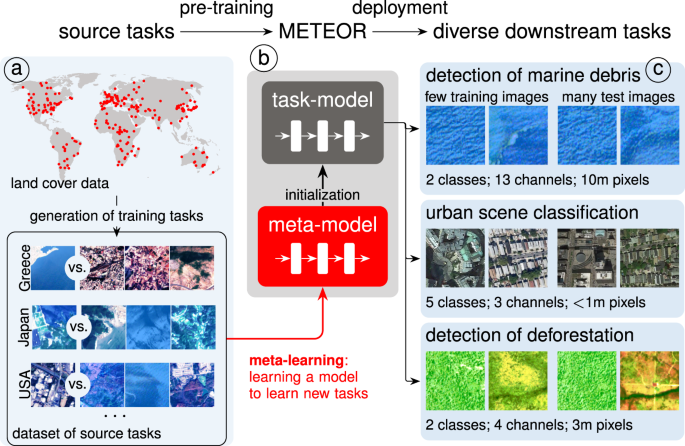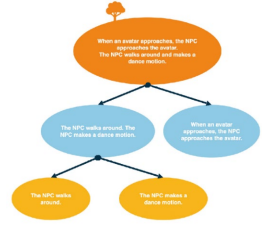2024-01-16 スイス連邦工科大学ローザンヌ校(EPFL)
◆今後は、基本的なAIを多くのタスクにトレーニングして適応力を向上させ、ユーザーが提案された画像をクリックできるようなユーザーインターフェースの統合も検討されています。
<関連情報>
- https://actu.epfl.ch/news/chameleon-ai-program-classifies-objects-in-satelli/
- https://www.nature.com/articles/s43247-023-01146-0
解像度を超えた多様な地球観測問題に取り組むためのメタ学習 Meta-learning to address diverse Earth observation problems across resolutions
Marc Rußwurm,Sherrie Wang,Benjamin Kellenberger,Ribana Roscher & Devis Tuia
Nature communications earth & environement Published:12 January 2024
DOI:https://doi.org/10.1038/s43247-023-01146-0

Abstract
Earth scientists study a variety of problems with remote sensing data, but they most often consider them in isolation from each other, which limits information flows across disciplines. In this work, we present METEOR, a meta-learning methodology for Earth observation problems across different resolutions. METEOR is an adaptive deep meta-learning model with several modifications that allow it to ingest images with a variable number of spectral channels and to predict a varying number of classes per downstream task. It uses knowledge mined from land cover information worldwide to adapt to new unseen target problems with few training examples. METEOR outperforms competing self-supervised approaches on five downstream tasks, showing its relevance to addressing novel and impactful geospatial problems with only a handful of labels.



